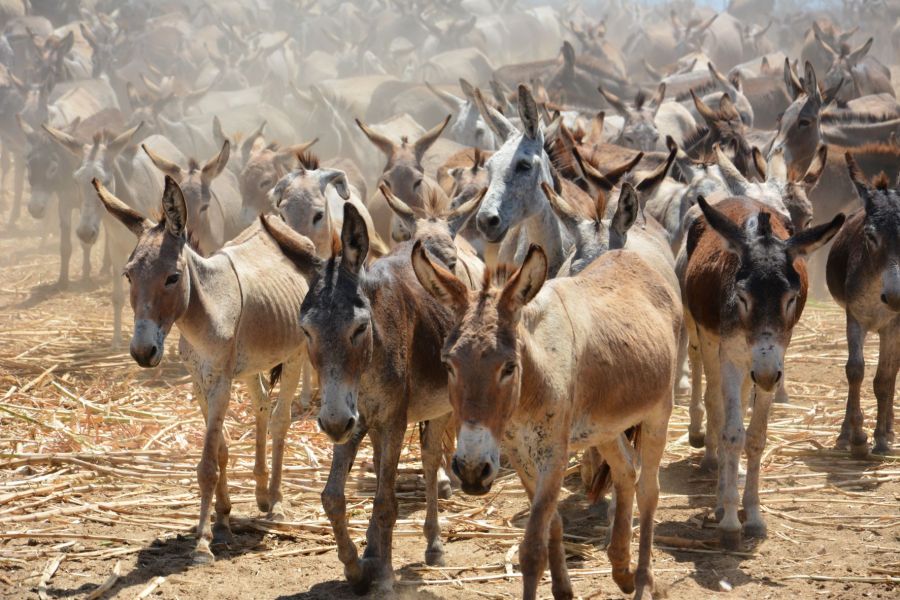Brazil has reinstated a ban on the slaughter of donkeys for export to China in a move welcomed by The Donkey Sanctuary.
The legislation was passed by the Special Court of the Federal Regional Court of the 1st region (TRF-1) in Brasilia on 3 February.
Since 2016, Brazil has been exporting increasing numbers of animal skins to China for the production of ejiao, a traditional remedy produced with gelatine found in donkey hides.
“The court decision is the culmination of a great deal of hard work by tireless animal welfare groups in Brazil and The Donkey Sanctuary is honoured to have played its part,” said Ian Cawsey, Director of Advocacy and Campaigns at The Donkey Sanctuary. “Since 2019, when the ban was overturned, donkeys in Brazil have been slaughtered in their tens of thousands every year.
“The judges spoke with passion about the role of the donkey in Brazilian culture and tradition and how their slaughter was out of step with the respect they have earned. Hopefully Brazil’s decision will send a message to other South American nations who allow donkeys to be killed for their skins, that sometimes the value of an animal goes beyond its worth in dollars.“
The use of Ejiao, containing collagen extracted from donkey hides, is growing in popularity in China, where it is used to treat various health conditions from anaemia to insomnia and is taken as a general health tonic.
China is no longer able to meet demand with its own donkeys so traders have been targeting donkey-dependent communities in Africa and increasingly moving further afield to Brazil and other countries in the Americas.
It is estimated that more than 60,000 donkeys are slaughtered every year in Brazil as China tries to keep up with the demand for skins to satisfy consumer demand for ejiao products. It is feared Brazil’s donkeys are being slaughtered faster than they are able to reproduce and the population could be wiped out.
“We will continue to campaign for these defenceless animals,” added Mr Cawsey. “In Brazil, this will include a public action campaign to show local politicians that the Brazilian public are opposed to donkey slaughter and instead want to see these animals protected.
“Any reduction in donkey populations around the world would have a devastating impact on the livelihoods of an estimated 500 million people in some of the world’s poorest communities that the animals support.”










